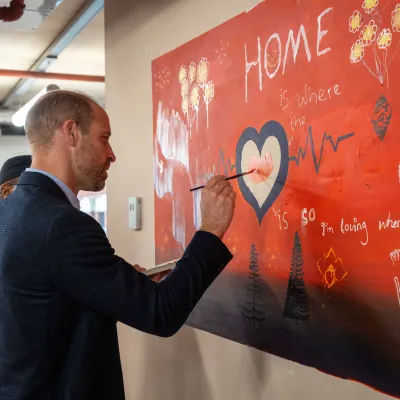The COVID-19 pandemic poses unprecedented risks to all, but those experiencing or at risk of homelessness are especially vulnerable. Charities like Centrepoint, Depaul UK and St Mungo’s which directly provide accommodation for people who are homeless are determined to do everything it takes to maintain the high level of service we deliver all year round, yet the sector needs vital support from the government to do this.
This briefing sets out the key policy changes we need to see in order to protect people living in supported and other types of homelessness accommodation during the pandemic.
Urgent support for charities providing accommodation for homeless people
Thousands of staff are doing vital work to keep homeless people safe and healthy during this pandemic, but we are approaching a crisis point. Support from the government is urgently needed, which goes beyond a focus on rough sleeping, to ensure that vital homelessness services remain open:
-
An emergency fund is needed for homelessness accommodation providers. Many providers receive limited statutory funding. The sector is highly reliant on voluntary income, which is not sustainable at the present time. Access to funding, particularly to help with additional staffing costs, will help homelessness accommodation providers to continue to deliver services.
-
The Government should make bloc payments of housing benefit to homelessness accommodation providers. Government could reduce financial risks for homelessness accommodation providers and residents, as well as administration costs, by making a three-month bloc-payment of Housing Benefit in advance, with built-in safeguards to protect against future overpayment deductions.
-
All homelessness accommodation providers should have Personal Protection Equipment urgently delivered, including thermometers and access to testing facilities. We recognise the sudden dramatic increase in demand for this equipment, but without being able to identify who has contracted COVID-19 it will be impossible to effectively isolate vulnerable residents in shared accommodation facilities and limit further spread of the virus to residents and staff
-
All homelessness service providers should be able to access emergency self-contained accommodation to allow service users testing positive for or displaying symptoms of COVID-19 to safely self-isolate. Infectious diseases can spread rapidly in hostels and supported accommodation projects and put already vulnerable populations at major risk. All local housing authorities should identify and make available furnished properties such as social housing voids, hotels and bed and breakfasts, and empty private properties where necessary. This requires a commitment from government to go beyond the £3.2m already earmarked to help local authorities source accommodation for people sleeping rough to self-isolate.
-
Comprehensive planning and support measures should be put in place for providers across the country. While the current focus is on London, the rapid spread of this virus means that support measures must be put in place for providers in the rest of the country, including rural and coastal communities without delay.
Access to statutory homelessness and housing services
Local authorities have legal duties to support, and in some cases accommodate, those who are homeless or at risk of homelessness. COVID-19 poses additional stresses which will cause homelessness, alongside existing factors. Yet local authorities are under strain to keep their service running, so further measures are needed now and over the coming months:
-
Financial support and assistance for local authorities and third sector providers to secure self-contained accommodation to meet the increased need for both rough sleepers and also residents in supported accommodation for whom self-isolation is not feasible.
- Local authority housing services are recognised as essential services and receive the support they need to remain operational. It is vital that local authority housing authorities can continue to play their role and do not leave those who are homeless or at risk without the immediate advice and support they are legally entitled to.
Support through the welfare system to protect those who face homelessness
The welfare system must provide a vital safety net to all during the pandemic. Additional measures are needed which protect those who are currently experiencing homelessness as well as preventing more people losing a home:
- Advance payments for Universal Credit should be available immediately and non-repayable. This would ensure that vulnerable claimants get the urgent financial support they need without waiting for the first payment and without fear of being pushed into debt.
- All conditionality sanctioning and automatic deductions should be paused for the foreseeable future. This would ensure claimants are not subject to impossible work search activity in the current climate and as a result sanctioned for failure to meet the claimant commitment.
We have written a letter to Prime Minister Boris Johnson, along with our fellow homeless sector charities, to ensure these measures are met and that we continue to protect the homeless and vulnerable people who take solace in our services and may need to self-isolate. You can read that letter here.
If you would like to donate, please do so here. We so appreciate your support at this challenging time.
For more information please contact:
Abi Gill, Senior Policy & Research Manager at Centrepoint a.gill@centrepoint.org
Dan Dumoulin, Policy & Public Affairs Manager at Depaul UK Daniel.Dumoulin@depaulcharity.org.uk
Beatrice Orchard, Head of Policy, Campaigns & Research at St Mungo’s Beatrice.Orchard@MUNGOS.ORG






